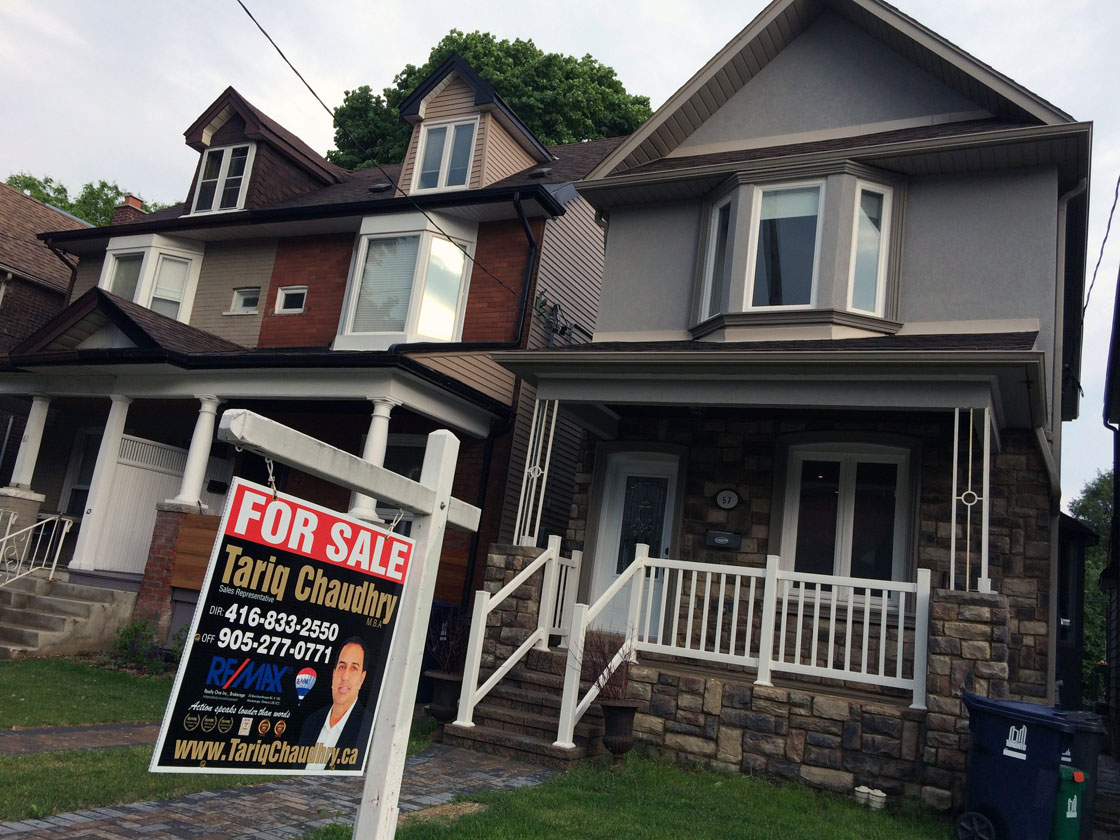The ability of young house hunters to afford a home in Toronto or Vancouver is getting worse seemingly by the month.

The latest snapshot from RBC Economics measuring how much income the average household would have to spend to carry an average detached property in those cities based on current prices hammers home the point.
In its quarterly assessment of affordability, published Monday, RBC said it would require 88.6 per cent of a “typical” household’s monthly pre-tax income to support the mortgage payments, taxes and utilities on a bungalow in Vancouver. In Toronto, the reading is 59.4 per cent (see chart below).
Both readings moved higher by a few percentage points between the first and second quarters as Vancouver and Toronto home prices surged, fueled by sustained exuberance among buyers and even lower interest rates this year.
MORE: ‘Distorted’ home prices in Vancouver, Toronto stoke market higher
“The Toronto and Vancouver markets really stand out because of their elevated and rapidly rising prices,” Craig Wright, the chief economist at RBC, said.
“Historically low interest rates continue to provide substantial stimulus for housing demand at this point in time,” Wright said.
Despite the growing strain amid skyrocketing prices, limited stock of detached homes will ensure the trend continues for a while yet, RBC said. “Affordability is likely to deteriorate further in Toronto and Vancouver in the period ahead due to upward price pressure being sustained by tight demand-supply conditions.”
Two-tiered
Elsewhere conditions are dramatically different.
“Outside of Toronto and Vancouver, affordability levels are close to, or slightly better than, long term averages,” said Wright, who said the housing market is fast-becoming “two-tiered”.
Lower oil prices are making homes more affordable in Calgary and Edmonton, while Montreal is also seeing more affordable conditions emerge.
Nationally, RBC’s benchmark reading for a detached bungalow was 43.3 per cent and 48.3 per cent for a two-storey home. Condos remain by far the most affordable home-ownership option at 27.1 per cent.
Wright said a rise in interest rates would strain affordability across all regions, but the economist doesn’t see that happening in the near-term. With oil prices slipping to multi-year lows and an economy treading perilously close to recession, many are betting the Bank of Canada cuts its key overnight interest rate again this year.
“We expect policy interest rates to remain low in the coming year,” the economist said. “This suggests that any near-term risk would stem from weakness in the labour market which has fortunately been holding up well to date.”
- ‘Shock and disbelief’ after Manitoba school trustee’s Indigenous comments
- Invasive strep: ‘Don’t wait’ to seek care, N.S. woman warns on long road to recovery
- Norad looking to NATO to help detect threats over the Arctic, chief says
- ‘Super lice’ are becoming more resistant to chemical shampoos. What to use instead




Comments